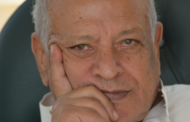تُواصل حكومة اليمين المتطرفة في إسرائيل عرقلة أي جهود جادة لإتمام صفقة تبادل الأسرى، مما يؤدي إلى تمديد أمد الحرب في غزة ويزيد من تعقيد المساعي الرامية إلى التوصل لحل يضع حداً للصراع المتواصل منذ أكتوبر الماضي. هذا التعطيل الإسرائيلي يأتي ضمن سياسة ممنهجة تهدف إلى الحفاظ على الضغط العسكري والسياسي على الفلسطينيين، وهو ما يزيد من حالة الجمود الدبلوماسي ويعيق أي تقدم نحو تسوية سلمية. في غضون ذلك، تستمر قوات الاحتلال الإسرائيلي في ارتكاب مجازر يومية بحق المدنيين الفلسطينيين في كل من غزة والضفة الغربية، ما أدى إلى تدمير شامل للبنية التحتية، وقوض كافة جوانب الحياة الاجتماعية والاقتصادية في هذه المناطق. هذه الأعمال تشكل بوضوح انتهاكات خطيرة للقانون الدولي، وتندرج ضمن تصنيف جرائم الحرب، ما يستدعي تحركاً دولياً عاجلاً لمحاسبة المسؤولين عنها.
في هذا السياق، شرعت محكمة العدل الدولية في اتخاذ خطوات ملموسة لفتح تحقيقات موسعة حول هذه الانتهاكات، وذلك بناءً على دعوى قدمتها دولة جنوب إفريقيا تتهم فيها إسرائيل بممارسة الإبادة الجماعية ضد الشعب الفلسطيني. هذه الخطوة القانونية تمثل تصعيداً دبلوماسياً ذا مغزى، وتعكس رغبة المجتمع الدولي في تفعيل آليات العدالة الدولية لمحاسبة إسرائيل على الجرائم المرتكبة. إذا ما تم المضي قدماً في هذه التحقيقات، فإنها قد تشكل سابقة قانونية تفرض قيوداً على تحركات إسرائيل في المستقبل، وتعيد التوازن إلى النظام الدولي الذي لطالما شهد اختلالاً في تطبيق القانون حين يتعلق الأمر بالصراع الفلسطيني-الإسرائيلي.
في الوقت نفسه، تواجه إدارة الرئيس الأمريكي جو بايدن ضغوطاً متزايدة، رغم الدعم المطلق الذي تقدمه لإسرائيل. فمنذ بداية الحرب، لم تدخر الإدارة جهداً في تقديم المساعدات اللوجستية والعسكرية، إلى جانب تأمين الغطاء الدبلوماسي لحماية إسرائيل من أي قرارات أممية تدين أعمالها العسكرية. لكن مع استمرار المجازر وتفاقم الأزمة الإنسانية في غزة، بدأت الأصوات ترتفع داخل الأوساط السياسية والمدنية في الولايات المتحدة وفي مختلف أنحاء العالم، داعيةً إلى ضرورة وقف العدوان وإنهاء المعاناة الإنسانية.
أمام هذه الضغوط الدولية، تجد الولايات المتحدة نفسها مضطرة للبحث عن مخرج دبلوماسي يخفف من حدة التوتر. ولهذا الغرض، تعمل واشنطن على دفع صفقة تبادل الأسرى بالتعاون مع وسطاء دوليين، أبرزهم مصر وقطر، في محاولة لإنهاء النزاع أو على الأقل تهدئته مرحلياً. غير أن هذه الجهود تصطدم بتعنت الحكومة الإسرائيلية،
التي تواصل انتهاج سياسة التصعيد العسكري، ما يجعل آفاق التوصل إلى حل شامل للصراع بعيدة المدى، ويجعل المجتمع الدولي أمام تحدٍ حقيقي لإيقاف دائرة العنف المتصاعدة.
ومع اقتراب إتمام الصفقة يضع رئيس الوزراء الإسرائيلي بنيامين نتنياهو عقبات متعمدة تعرقل أي تقدم ملموس فقد أعلن مؤخرًا رفضه التام للانسحاب من ممر فيلادلفيا الذي يفصل بين الأراضي المصرية والفلسطينية مدعيًا أن الممر يُستخدم لتهريب السلاح والأموال إلى حركة حماس ومؤكدًا على عزمه البقاء في السيطرة عليه بعد أربعين عامًا من الاحتلال في محاولة لتعزيز مكانته السياسية داخليًا وقد اتهم نتنياهو مصر في مناسبات سابقة بأنها تسعى لترك الممر مفتوحًا لتهريب الأسلحة إلى غزة وهي اتهامات وصفها العديد من المراقبين بأنها مجرد أكاذيب تهدف لتبرير سياساته العدوانية تشير هذه التصريحات إلى أن نتنياهو لا يهتم بمصير الأسرى الإسرائيليين بقدر اهتمامه بالحفاظ على صورته كمدافع شرس عن أمن إسرائيل وهو ما يخدم مصالحه السياسية ويضمن له البقاء في السلطة لأطول فترة ممكنة وفي حال نجحت الجهود الدولية وتم التوصل إلى اتفاق بشأن تبادل الأسرى وانسحاب الجيش الإسرائيلي من غزة قد تبدأ لجان التحقيق بالبحث في إخفاقات القيادة الإسرائيلية في إدارة الأزمة خاصة ما جرى في أحداث السابع من أكتوبر هذه التحقيقات قد تفتح الباب أمام ملاحقات قانونية ضد نتنياهو وعدد من وزرائه وربما تصل إلى إصدار مذكرات اعتقال من قبل محكمة العدل الدولية يبدو أن نتنياهو يستغل حالة الحرب للترويج لنفسه كزعيم قوي لا يتنازل عن “حقوق إسرائيل الأمنية” بينما تظهر الحقائق على الأرض أن هدفه الرئيسي هو إطالة أمد الصراع لتحقيق مكاسب سياسية شخصية متجاهلًا التبعات الإنسانية والسياسية الوخيمة التي قد تنتج عن استمرار القتال .
إن أي أمل في تحقيق تهدئة حقيقية بات مرهونًا بقدرة المجتمع الدولي على ممارسة ضغوط فعالة ومتواصلة على كافة الأطراف المعنية لدفعها نحو حل سياسي شامل يحقق الأمن والاستقرار لشعوب المنطقة كافة .
Netanyahu’s lies and the promised deal
by : Dr. Mohammed al-Farmawi
The right-wing extremist government in Israel continues to obstruct any serious efforts to finalize a prisoner swap deal, prolonging the war in Gaza and further complicating efforts to reach a solution to end the conflict that has been ongoing since last October. This Israeli obstruction is part of a systematic policy aimed at maintaining military and political pressure on the Palestinians, which increases the diplomatic stalemate and hinders any progress towards a peaceful settlement. Meanwhile, the Israeli occupation forces continue to commit daily massacres against Palestinian civilians in both Gaza and the West Bank, resulting in the total destruction of infrastructure and undermining all aspects of social and economic life in these areas. These actions clearly constitute serious violations of international law and fall under the category of war crimes, calling for urgent international action to hold those responsible accountable.
In this context, the International Court of Justice has begun taking concrete steps to open extensive investigations into these violations, based on a case filed by South Africa accusing Israel of committing genocide against the Palestinian people. This legal step represents a meaningful diplomatic escalation and reflects the international community’s desire to activate international justice mechanisms to hold Israel accountable for the crimes committed. If these investigations go forward, they could set a legal precedent that would impose restrictions on Israel’s future actions and restore balance to an international system that has long seen an imbalance in the application of the law when it comes to the Palestinian-Israeli conflict.
At the same time, the administration of US President Joe Biden is facing increasing pressure, despite its unqualified support for Israel. Since the beginning of the war, the administration has spared no effort in providing logistical and military assistance, as well as providing diplomatic cover to protect Israel from any UN resolutions condemning its military actions. However, as the massacres continued and the humanitarian crisis in Gaza worsened, voices began to rise within political and civic circles in the United States and around the world, calling for an end to the aggression and human suffering.
In the face of this international pressure, the United States is forced to look for a diplomatic way out to ease tensions. To this end, Washington has been pushing a prisoner swap deal in cooperation with international mediators, most notably Egypt and Qatar, in an attempt to end the conflict or at least temporarily calm it down. However, these efforts are hampered by the intransigence of the Israeli government, which continues to pursue a policy of military escalation.
which continues to pursue a policy of military escalation, making the prospects of reaching a comprehensive solution to the conflict remote and the international community facing a real challenge to stop the escalating cycle of violence.
Israeli Prime Minister Benjamin Netanyahu has recently announced his complete refusal to withdraw from the Philadelphia Corridor, which separates Egyptian and Palestinian territories, claiming that the corridor is used to smuggle weapons and money to Hamas and emphasizing his intention to remain in control of it after forty years of occupation in an attempt to strengthen his political standing internally. Netanyahu has accused Egypt on previous occasions of seeking to leave the corridor open to smuggle weapons to Gaza, which many observers have described as mere lies aimed at justifying his aggressive policies.
Any hope of achieving a real truce depends on the ability of the international community to exert effective and sustained pressure on all concerned parties to push them towards a comprehensive political solution that achieves security and stability for all the peoples of the region.












